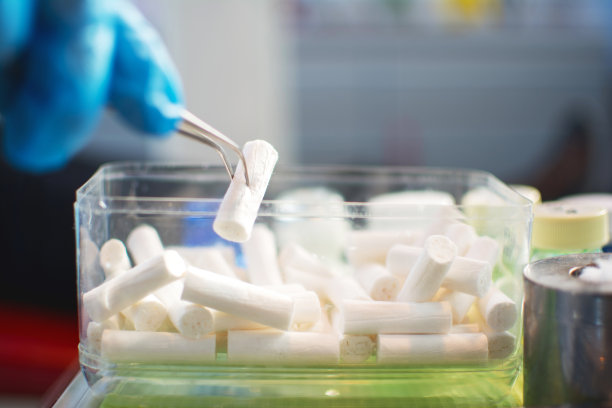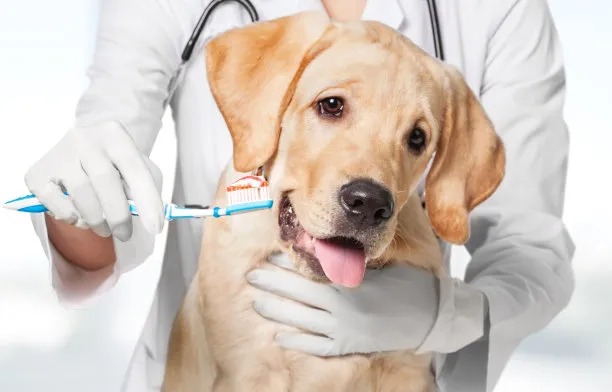Summary: Preparing for a tooth extraction can be a daunting experience, but with the right knowledge and strategies, the journey can be made smoother. This essential guide outlines the necessary steps to prepare for the procedure, including understanding what to expect, pre-operative tips, post-operative care, and emotional readiness for recovery. By following these guidelines, patients can ensure their extraction process and healing phase are as stress-free and effective as possible. Whether you are facing a simple extraction or a more complex surgical procedure, this comprehensive overview serves to empower and equip you with the information required for optimal recovery.
1. Understanding the Tooth Extraction Process

The first step in preparing for a tooth extraction is to understand the process involved. Knowing what to expect can significantly reduce anxiety and fear. Your dentist will typically take X-rays to assess the condition of the tooth and surrounding structures. This information helps them plan for the best approach during the procedure.
Dentists may perform either simple extractions or surgical extractions, depending on the tooths condition and location. While simple extractions often involve loosening the tooth with instruments, surgical extractions may require incisions into the gum. Familiarizing yourself with the type of extraction youll undergo helps prepare you mentally and emotionally.
During the appointment, the dentist will also discuss anesthesia options, such as local anesthesia or sedation. It’s crucial to communicate any concerns or preferences to ensure you’re comfortable throughout the procedure.
2. Pre-Operative Tips for Smooth Preparation
Preparation can play a significant role in how smoothly your tooth extraction goes. Start by following your dentist’s guidelines regarding eating and drinking before the surgery. Typically, you’ll need to refrain from consuming food or beverages several hours before your procedure, especially if sedation will be used.
Additionally, plan for your recovery in advance by organizing a ride home. Most extraction procedures require some form of anesthesia, which can impair your ability to drive. Having a trusted friend or family member accompany you not only provides transportation but emotional support as well.
It is also helpful to identify and gather supplies for your recovery, such as ice packs, gauze, and over-the-counter pain medications. Preparing your home environment to ensure a restful recovery can make the post-operative phase much more manageable.
3. Post-Operative Care for Optimal Recovery
Post-operative care is vital to ensure a smooth recovery after your tooth extraction. Immediately following the procedure, bite down gently on the gauze your dentist provides to help control bleeding. Change the gauze as instructed, and if bleeding persists, don’t hesitate to reach out to your dental professional.
Ice packs can significantly reduce swelling and discomfort in the first 24 hours. Apply ice to the affected area for 15-20 minutes every hour, as directed. After the first day, you can switch to warm compresses to promote healing.
Pay close attention to your diet during the recovery phase. Stick to soft foods and liquids for the initial few days, avoiding hot, spicy, or crunchy items. Staying hydrated is equally important, but be careful with straws, as sucking can dislodge the blood clot that forms in the extraction site.
4. Managing Emotions and Expectations During Recovery
An often overlooked aspect of preparing for a tooth extraction is managing emotional health. Anxiety before dental procedures is common, and it’s important to acknowledge these feelings. Using relaxation techniques such as deep breathing or visualization can help ease nerves leading up to your appointment.
During recovery, mood swings can occur due to discomfort or limitations in regular activities. Communicate with friends or loved ones about how you’re feeling, and don’t shy away from seeking professional support if needed. Engaging in light activities such as reading or watching films can also help distract you during the healing process.
Lastly, set realistic expectations for recovery time. Most people heal quite well within a few days, although complete healing may take a week or more. Keep in close contact with your dental provider should any unusual circumstances arise, as they are your best resource for support.
Summary:
Tooth extraction can be a challenging experience, but understanding the process and preparing adequately can lead to a more manageable recovery. By focusing on pre-operative preparation, post-operative care, and emotional support, patients can enhance both their comfort and healing following the procedure. Follow these guidelines to ensure a smoother journey to recovery.
This article is compiled by Vickong Dental and the content is for reference only.
Vickong Dental
Vickong Dental is a large medical group established in Hong Kong in 2008 by professors from well-known medical universities in Guangdong and Hong Kong, as well as medical doctors from key national '985' universities (including Master's supervisors and senior professors). The chain of branches brings together expert dentists with PhDs and Master's degrees from Hong Kong and Mainland China, committed to providing high-quality dental treatment.
"Vickong Dental Practices the University Motto of 'Healing and Serving Society,' with a Stable Operation for Sixteen Years. It Has Been honored with Hong Kong Enterprise Leaders's Choice,' and is a Global Trusted Implant Center for the Nobel Implant System. Recommended by Hong Kong Metro Broadcast and Guangdong Television, it Serves Customers from Over Thirty Countries and Regions, Gaining the Trust and Favor of Citizens from the Guangdong-Hong Kong-Macau Greater Bay Area and Surrounding Cities.

Thousands of customers' unanimous praise
The most recognized and highly recommended dental service by customers in the Guangdong-Hong Kong-Macau Greater Bay Area
We Ensure You Receive Detailed Care and Attention Here
Hong Kong standards, Shenzhen prices, Your Trusted English-speaking dentists

Vickong Dental Medical-Grade Instrument Disinfection Process
Vickong Dental Medical-Grade Instrument Disinfection Process

Vickong Dental Chain: A Warm and Comfortable Environment for Treatment






Appointment Hours

Q&A
Why choose Vickong Dental?
Vickong Dental practices the university motto 「Medicine to Benefit Society」, with each branch bringing together highly qualified dentists with doctoral and master’s degrees from Hong Kong and the Mainland, and has maintained seventeen years of steady operation。Recipient of 「2024 Hong Kong Enterprise Leaders Brand」, 「2025 Hong Kong Enterprise Leaders Brand」, a Nobel Biocare Global Trusted Implant Center, and a brand recommended by Metro Radio Hong Kong and Guangdong TV。
To date, we have served customers from more than thirty countries and regions,earning exceptionally high word-of-mouth recognition and trusted recommendations from residents across the Guangdong-Hong Kong-Macao Greater Bay Area and surrounding cities
We have eight major branches in Zhuhai、Shenzhen,and a consultation and service assurance center in Hong Kong,so you can book a free consultation at any time for any questions,which is very reassuring.
If I do not accept the quotation after the CT scan, will I be charged??
No! As long as the actual treatment has not started, you will not be charged any fees.
Will there be any additional charges during the treatment process?
No, there won’t be any additional charges. Before treatment begins, we will clearly explain the treatment plan and its corresponding fees. Only after the patient agrees and signs the consent form will we proceed with the dental service.
Can I pay in Hong Kong dollars?
Yes. Vickong Dental accepts payment in Hong Kong dollars. The amount will be converted based on the exchange rate of the day, and the applicable rate will be clearly communicated to you in advance.
Can I reschedule my appointment at any time?
Yes. Please contact us via **WeChat** or **WhatsApp** as early as possible, providing your original appointment time and details, along with your preferred new date and time slot for rescheduling.













